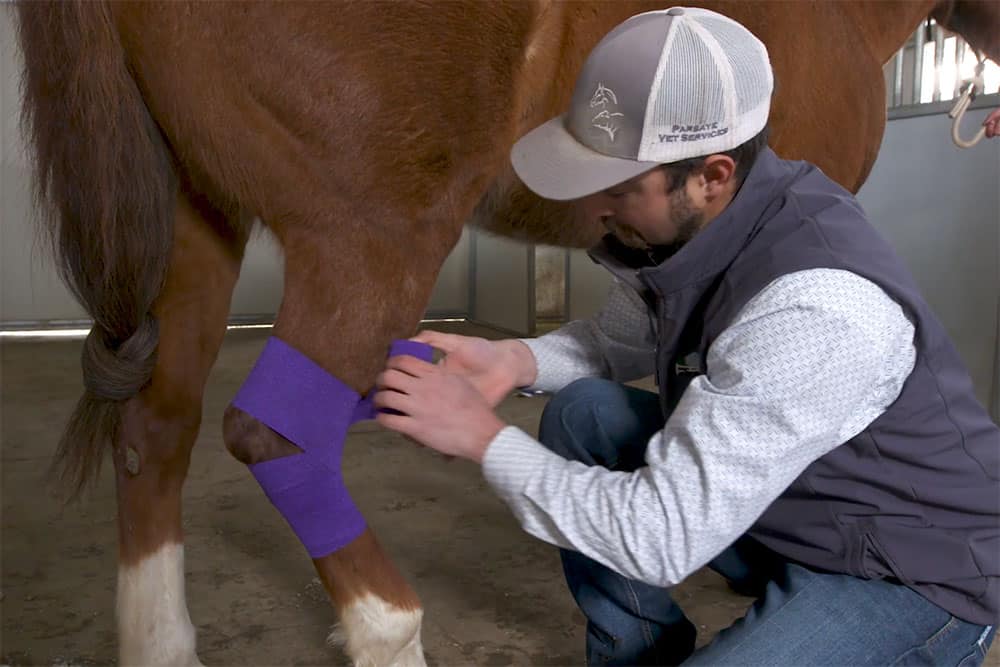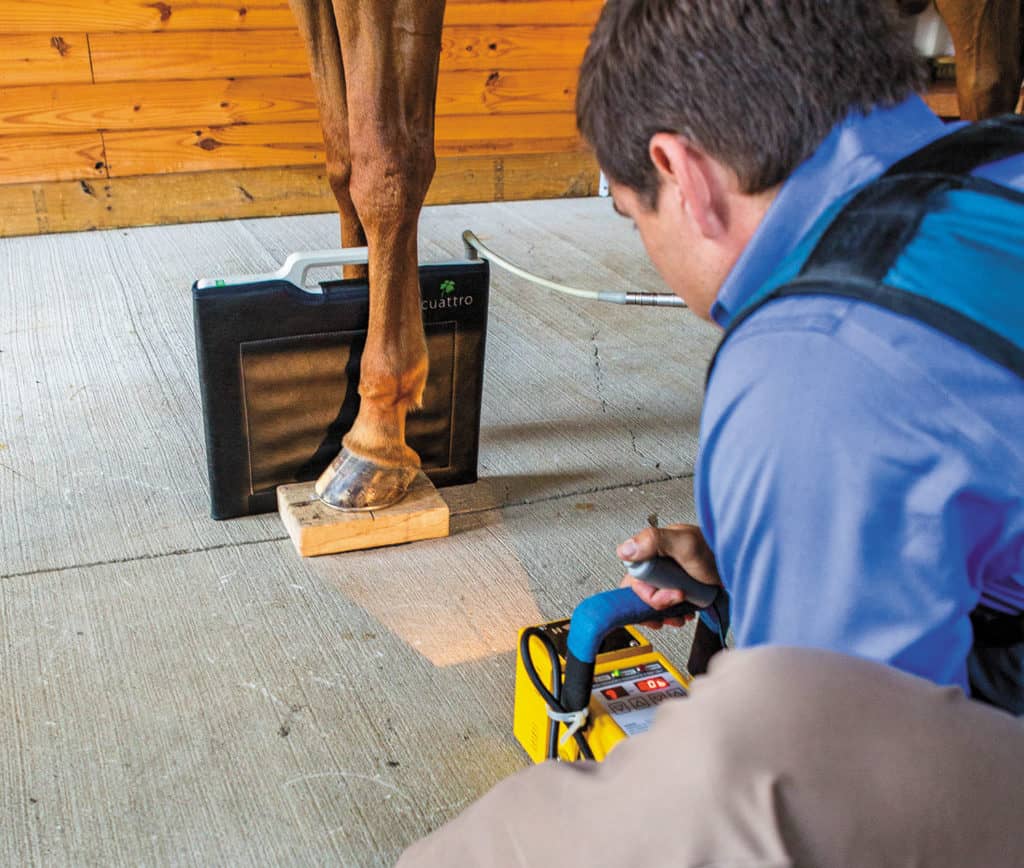
Rehabilitation: Electrotherapy for Horses
Practitioners use electrotherapy methods ranging from vibration and lasers to shock wave in equine injury rehabilitation.
How to care for the basic health needs of horses

Practitioners use electrotherapy methods ranging from vibration and lasers to shock wave in equine injury rehabilitation.

Wrapping a hock can be difficult, but these tips from a veterinarian can help.

A veterinary podiatrist explains how X rays can be a useful tool for managing horses with chronic laminitis.

How often should you feed your horses each day? Our nutrition expert weighs in with advice.

A veterinarian explains how to increase a horse’s weight safely.

A veterinarian answers common questions about this respiratory disease.

Discover tips for managing horses with insulin resistance in the archived recording of our podcast. Sponsored by Wellness Ready.

Foal pneumonia can be quite severe, but with aggressive management foals can recover and go on to lead normal lives.

Sand accumulation in a horse’s gastric system is cause for concern; this method can help you detect it.

This inflammation of the lungs most commonly affects foals, but that doesn’t mean your mature horse isn’t at risk.

Identifying lameness early is key to preventing long-term damage.

Butterfly Network and The Horse: Your Guide to Equine Health Care have partnered for equine pneumonia education Sept. 4-9.

Here’s how to help your weanling foal transition to adulthood as smoothly as possible.

Controlled exercise, as discussed with your veterinarian, can be part of a successful rehabilitation program.

Will a senior diet negatively affect a young horse? Two equine nutritionists agree it likely won’t.

Learn about preventing and managing equine osteoarthritis in our visual guide.
Stay on top of the most recent Horse Health news with
"*" indicates required fields